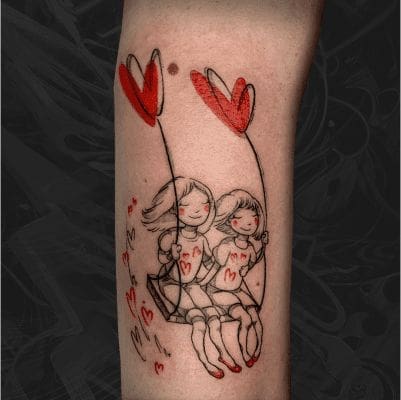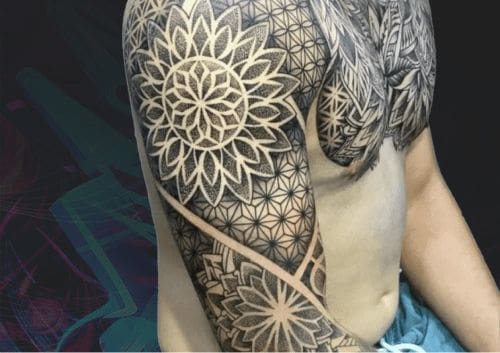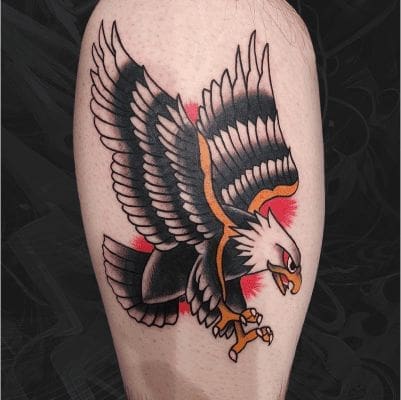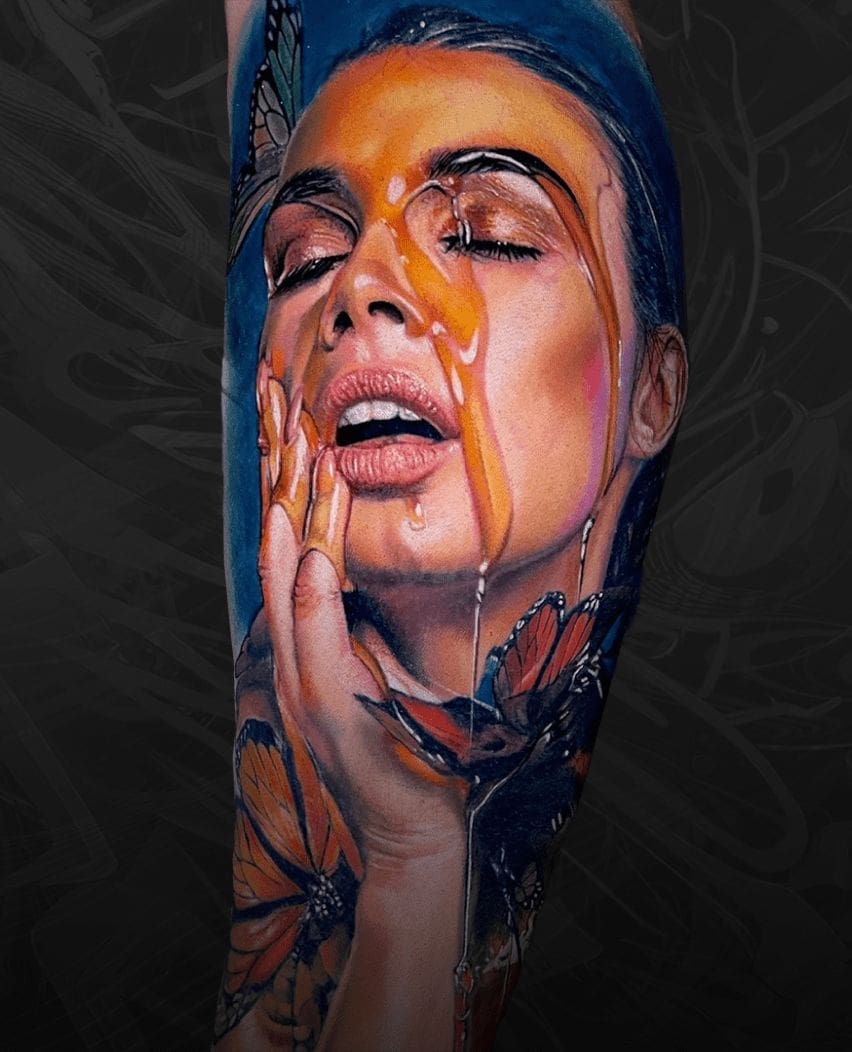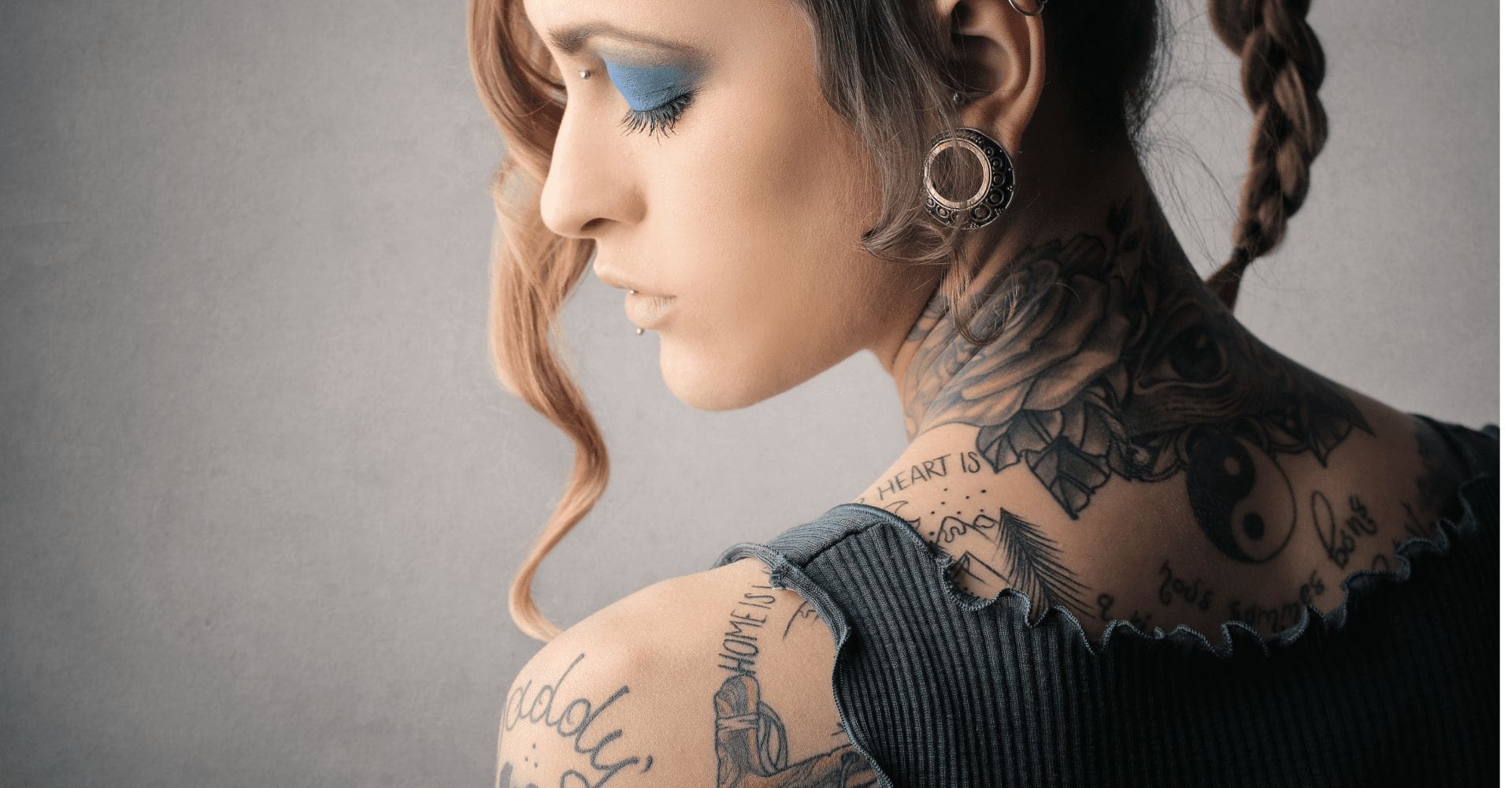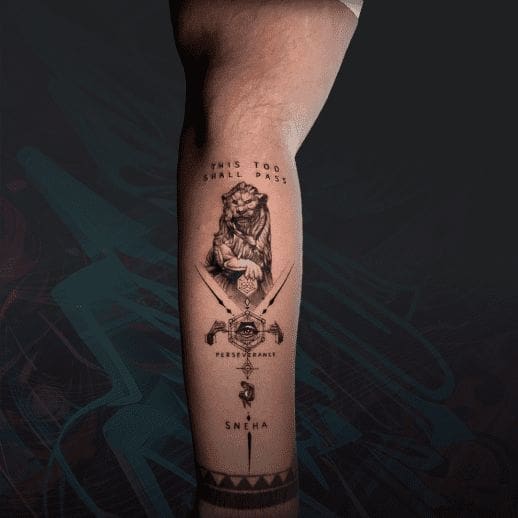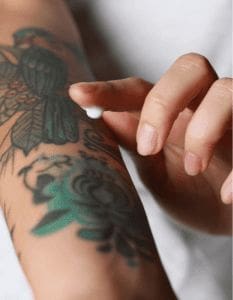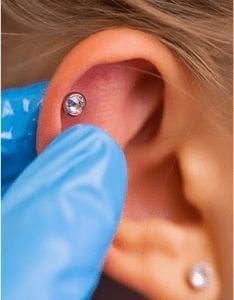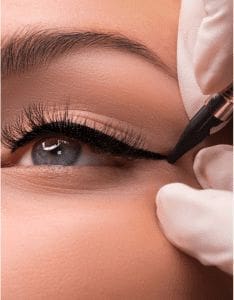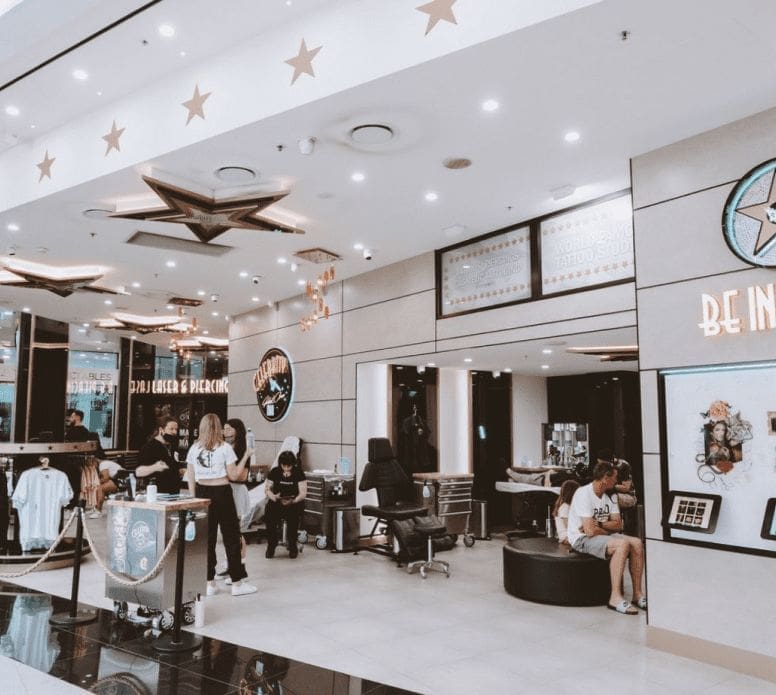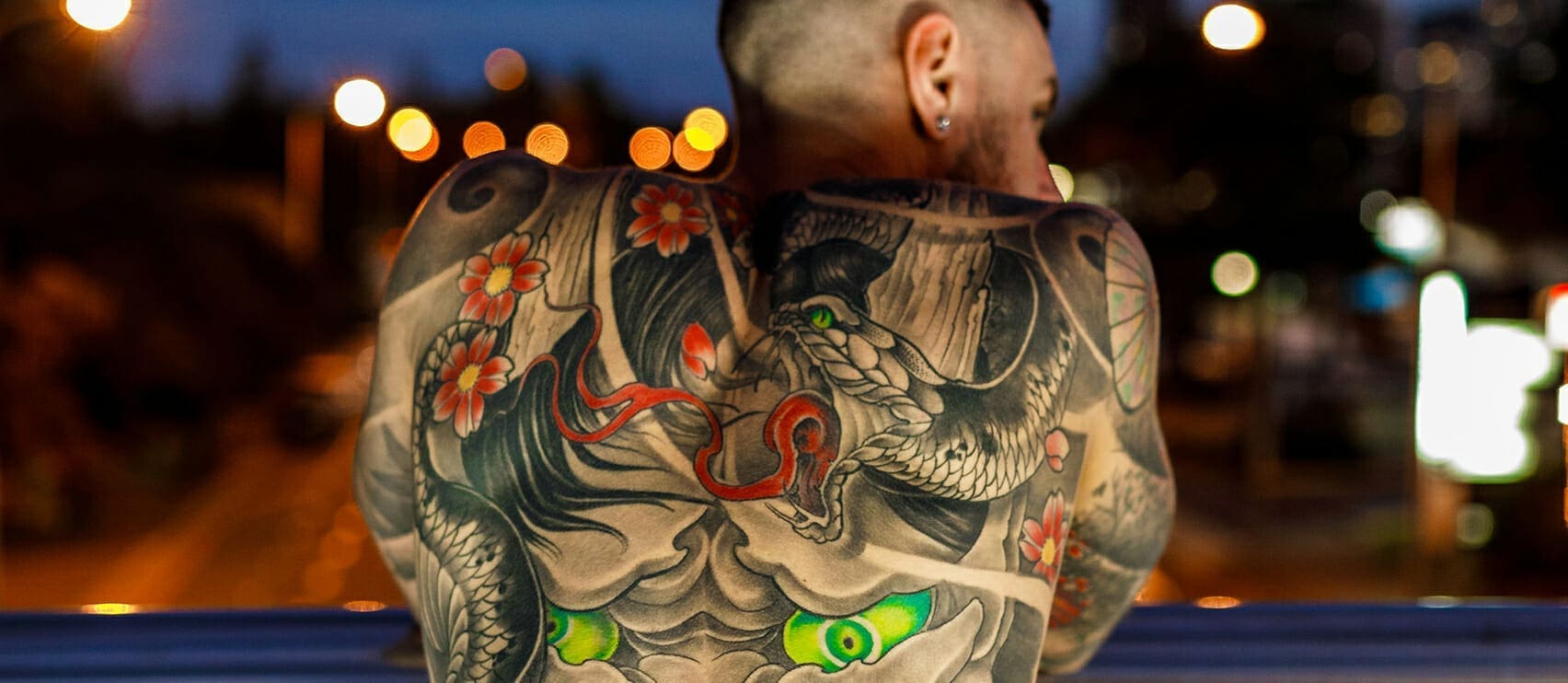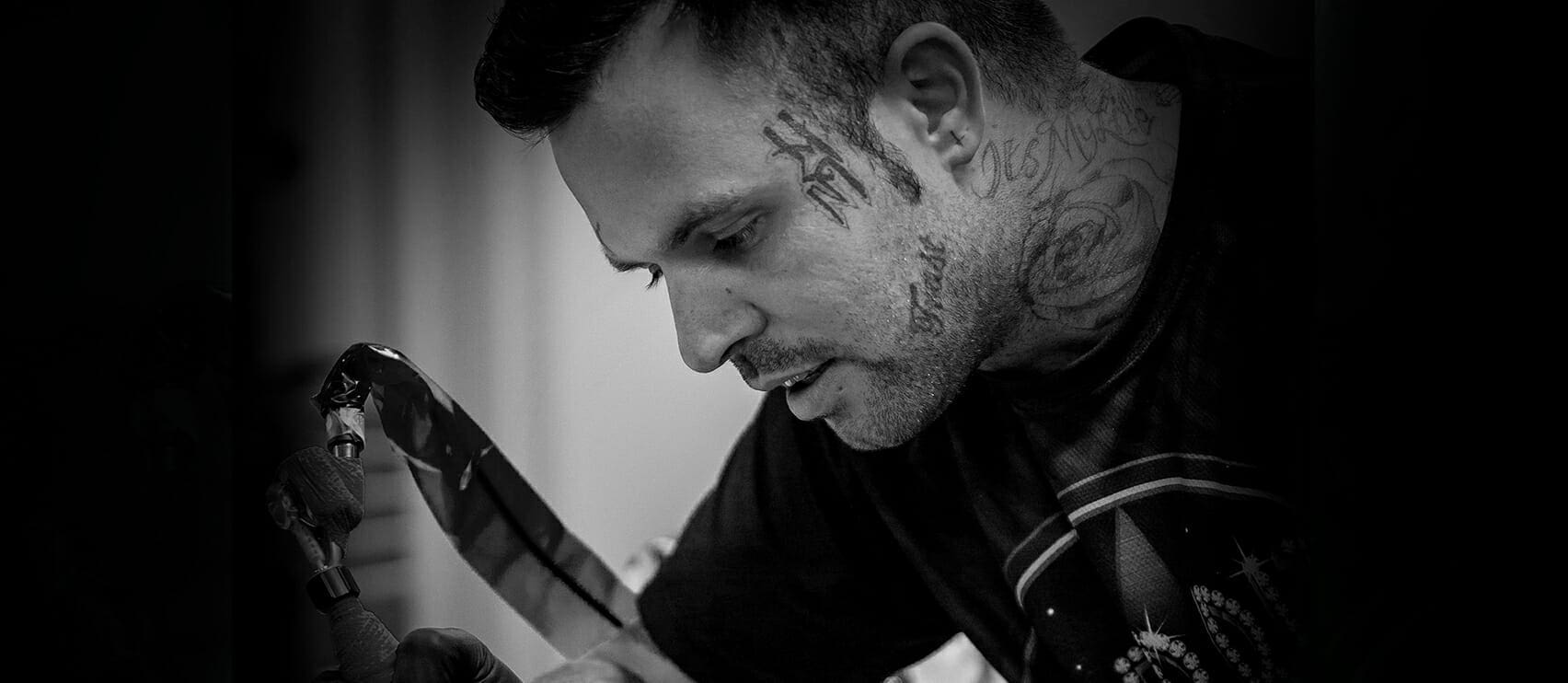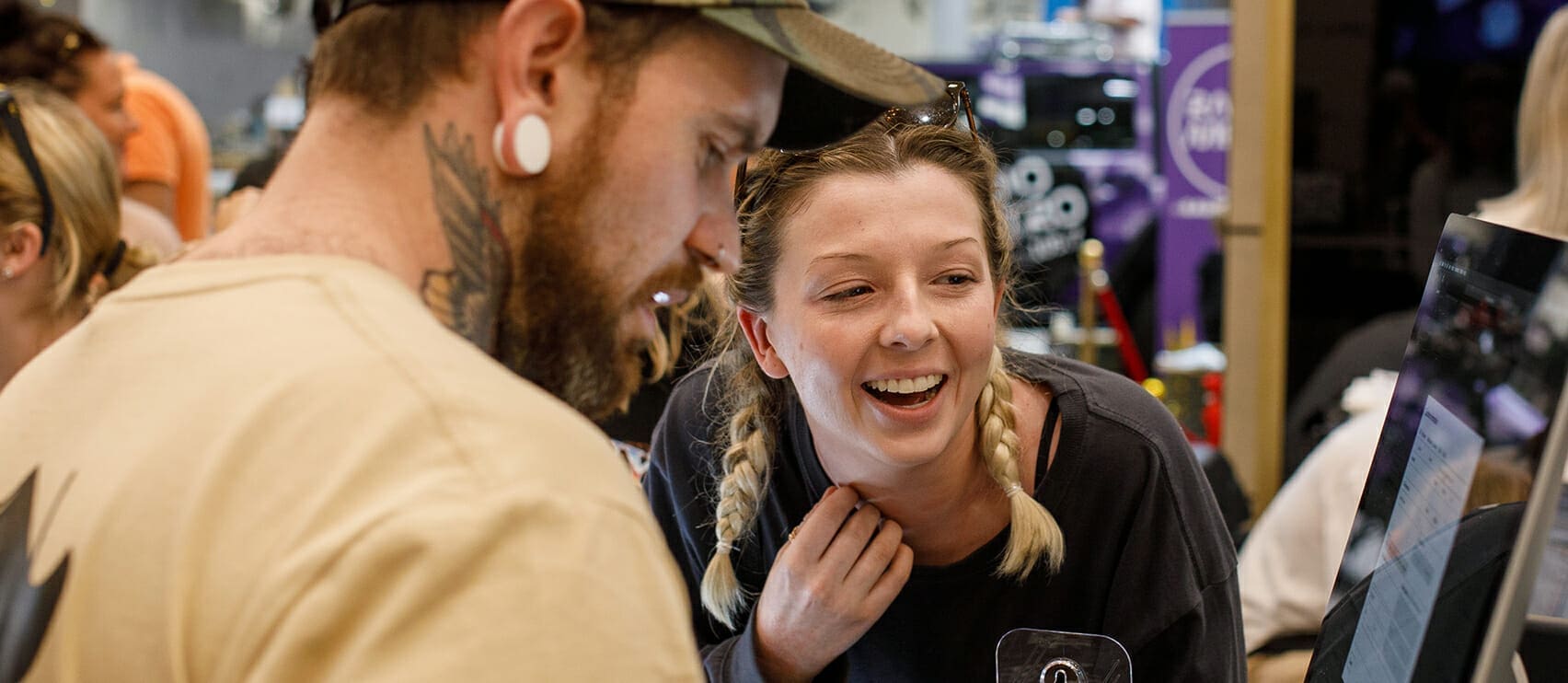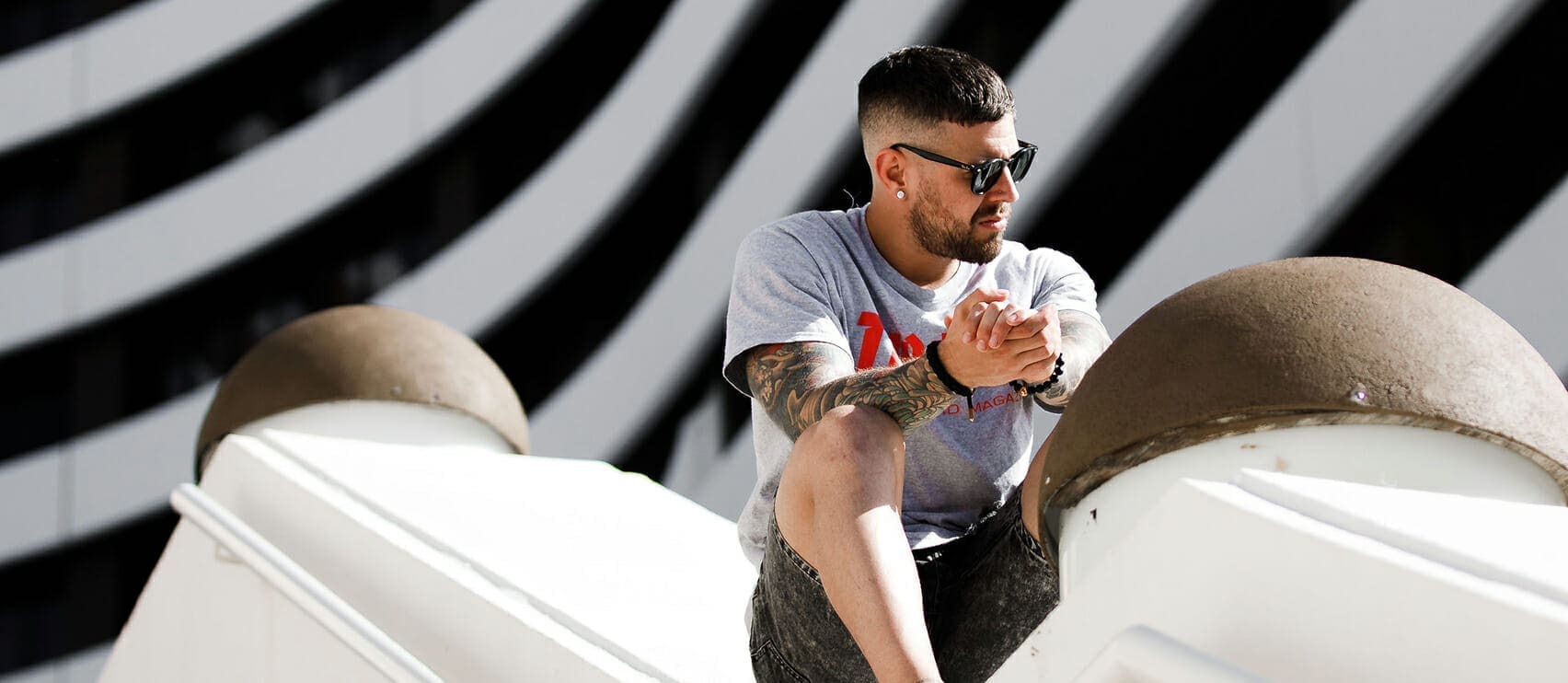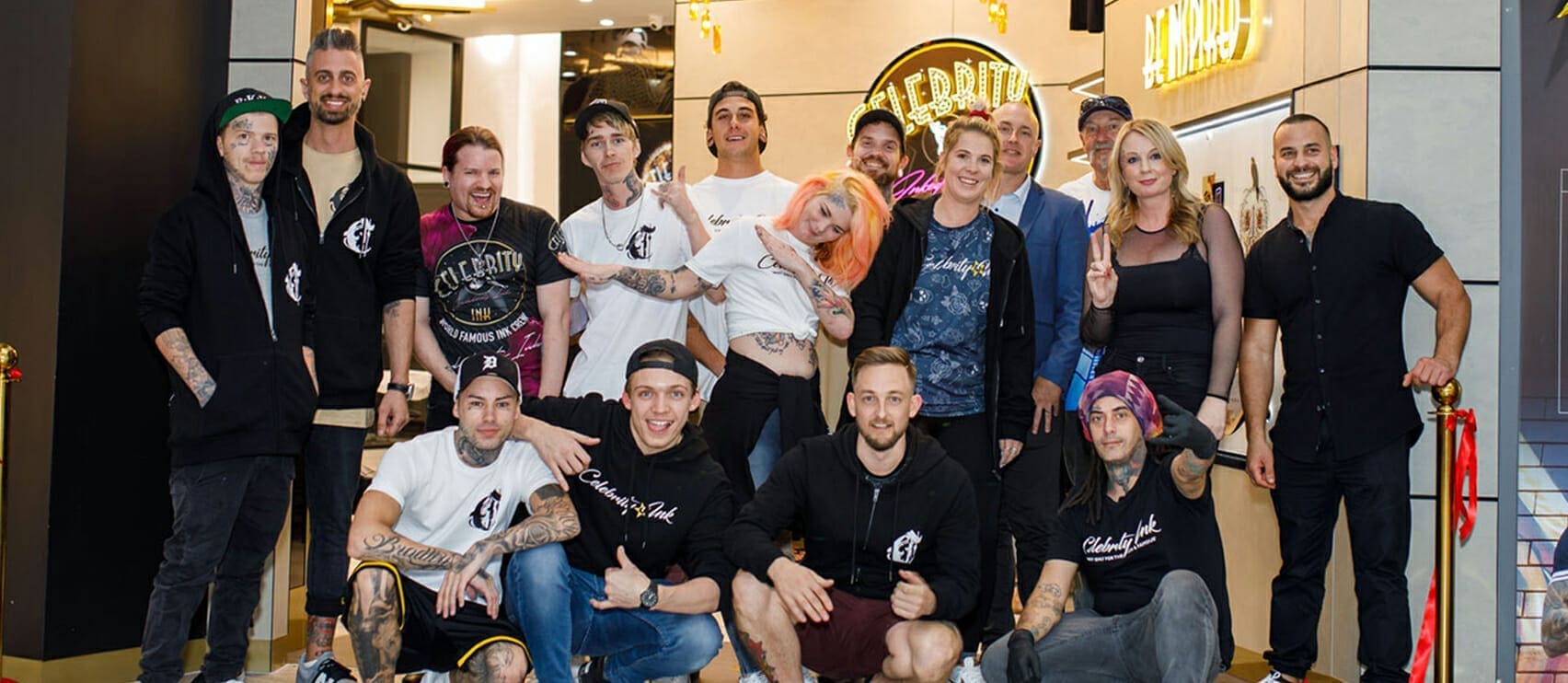If you are looking for something a little different to your regular standard piercing, an industrial piercing is unique and can be customised, so this could be a great next step. Think Lisbeth Salander from The Girl With The Dragon Tattoo as to a general inspiration for this look, but surprisingly it can look very cute too depending on your jewellery choice so it’s a great unisex option.
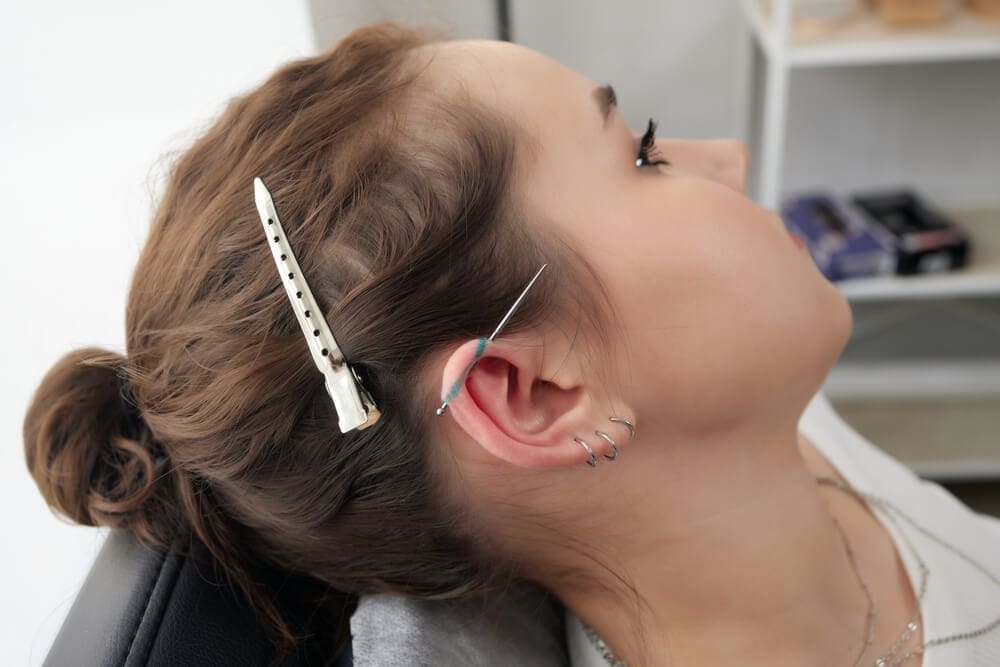

Image credit: Erin Duerr
Industrial Piercings consist of two piercings through the ear cartilage, linked via one barbell style piece of jewellery inside the ear across the width of the two piercings. The word industrial refers to a scaffold type piercing that joins the anti-helix and helix parts of the ear. It is possible to have more than one in a single ear, but it’s not recommended to get more than one at a time for first time industrial piercers due to the nature of the healing process. Is it right for you? It’s more painful than a standard type of piercing and definitely not for anyone who likes to take shortcuts when it comes to aftercare! But if you can handle the pain and are fastidious about hygiene, then this could be your next statement piece.
Is my ear suited to an industrial piercing?
The industrial piercing process does allow for various placements and configurations, especially if you have the ear for it. If you have a smaller ear, it is still possible but note, it’s not an ideal type of piercing for smaller ears. This is due to the anatomy of the ear - if your ear is smaller, you might not be able to accommodate the industrial type piercing but it’s best to check with your piercer. They may have to look into a non-standard piece of jewellery to accommodate the size of your ear.
How much does it hurt?
Most people would be familiar with the slight pain you get with a normal ear piercing. It hurts a little momentarily and then it’s gone. However, as an industrial piercing goes through the ear cartilage, which is much stiffer and less flexible than muscle, it will hurt more to pierce. However, the pain is not unbearable and it’s good to remember the end result and that the pain will be gone soon. Also, as it has less blood flow to this area, you should know it can take longer to heal (but remember that it will!)
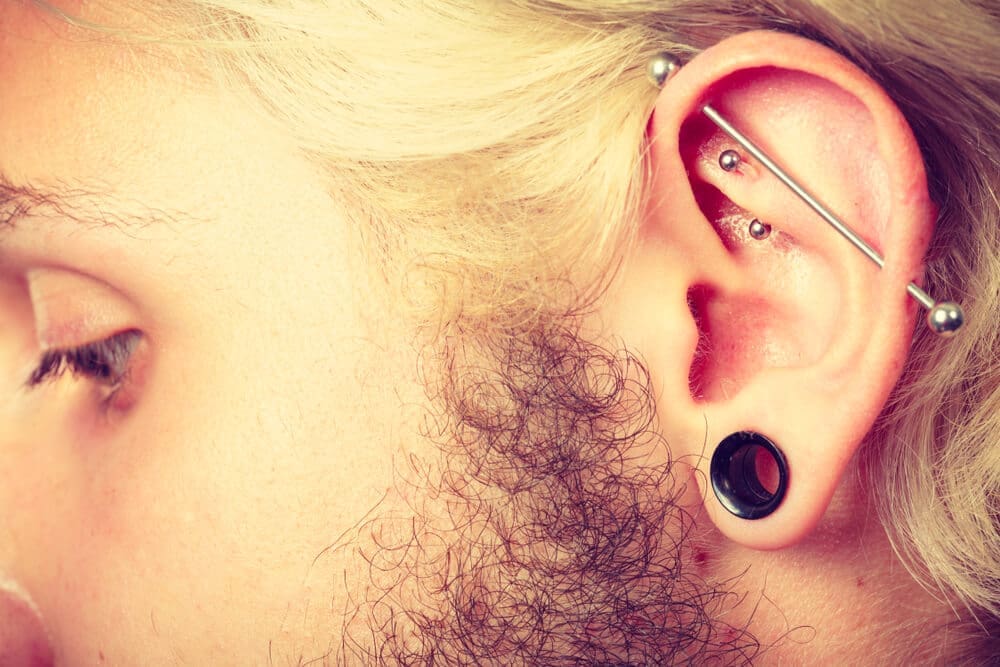

How long it will take to heal and tips for aftercare
The healing process can vary from person to person. It can take anywhere from three months to a year depending on your aftercare routine. Your piercer will have their own advice and preferred aftercare products including a solution to help the healing process, but generally it’s important to care for your piercings twice a day with a solution and ensure it is dry as well. Don’t overdo the solution as that can dry the skin out too much which can lead to other problems. Some tips for aftercare include:
- Making sure your hands are washed thoroughly before touching your ears. Your ears will heal much faster if you avoid touching or rubbing them
- If you are applying products to your hair, make sure your ear piercings are protected during this time as well
- Avoiding things like swimming pools as it can carry bacteria which can infect the area
- Avoiding sleeping on your side or in any position which can put pressure on the ear
- Pulling your hair back if you can as hair can get caught up in your jewellery and infect the piercing whilst it is healing.
What types of jewellery can I wear?
The most important advice to give regarding your jewellery choice is to ensure it is of the highest quality. Look for stainless steel or titanium, but not all metals are created equal so check that it is 316L or 316LVM for sanitation purposes. Depending upon your piercer and your ear anatomy, you could be pierced with a 14g or 16g barbell.
The industrial style of piercing does not stretch well and if stretched too much, it can cause other ear complications so it’s best to stick with these sizes and certainly nothing larger than a 16g barbell. You can have horizontal or vertical piercings, and sometimes, as it causes less pressure on the ear tissue, many piercers may suggest the use of captive rings or two studs instead of a single scaffold during the piercing process to aid in healing. You can swap it out to your preferred jewellery choice no earlier than six weeks after your piercing but you need to let the state of your healing be your guide.
Other jewellery options include circular barbells, plain straight barbells, design barbells with beading, labret studs and captive rings, a spiral which can be twisted in and out of both holes to wrap around the top of the ear.
An industrial ear piercing is still a unique choice and the jewellery options are far and wide meaning you can really have something that is very individual. Just be sure you have a professional for the procedure and that you don’t accept a piercing from a stud gun which can cause infection. We are now open at Celebrity Ink™ so book a visit with one of our professional body piercers today to get the best result.

